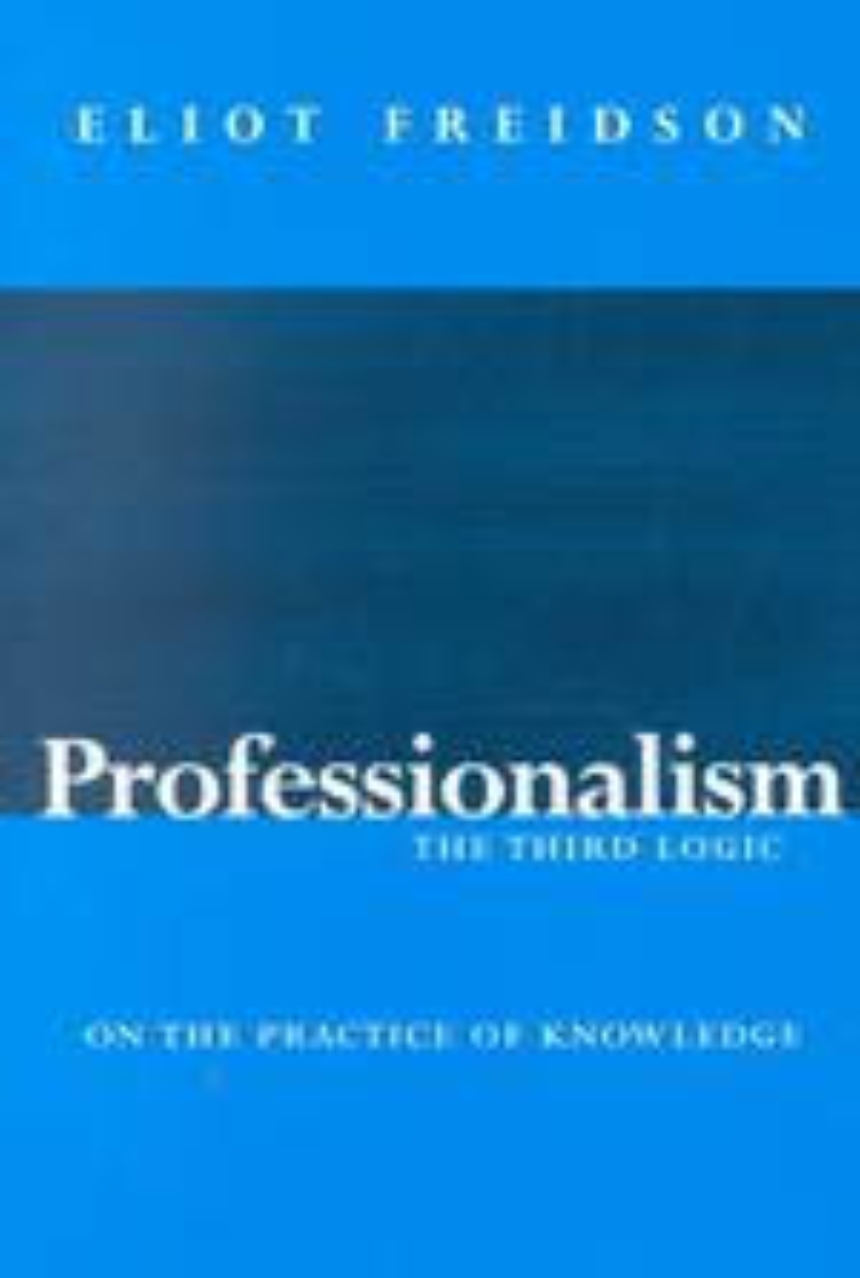Professionalism, the Third Logic
On the Practice of Knowledge
This new work explores the meaning and implications of professionalism as a form of social organization. Eliot Freidson formalizes professionalism by treating it as an ideal type grounded in the political economy; he presents the concept as a third logic, or a more viable alternative to consumerism and bureaucracy. He asks us to imagine a world where workers with specialized knowledge and the ability to provide society with especially important services can organize and control their own work, without directives from management or the influence of free markets.
Freidson then appraises the present status of professionalism, exploring how traditional and national variations in state policy and organization are influencing the power and practice of such professions as medicine and law. Widespread attacks by neoclassical economists and populists, he contends, are obscuring the social value of credentialism and monopolies. The institutions that sustain professionalism in our world are simply too useful to both capital and state to dismiss.
Freidson then appraises the present status of professionalism, exploring how traditional and national variations in state policy and organization are influencing the power and practice of such professions as medicine and law. Widespread attacks by neoclassical economists and populists, he contends, are obscuring the social value of credentialism and monopolies. The institutions that sustain professionalism in our world are simply too useful to both capital and state to dismiss.
240 pages | © 2001
History: American History
Political Science: Public Policy
Sociology: Occupations, Professions, Work
Table of Contents
Acknowledgments
Introduction
Part I - Professionalism: The Ideal Type
1 Professional Knowledge and Skill
2 Divisions of Labor
3 Labor Markets and Careers
4 Training Programs
5 Ideologies
Part II - The Contingencies of Professionalism
6 States and Associations
7 Bodies of Knowledge
Part III - The Fate of Specialized Knowledge
8 The Assault of Professionalism
9 The Soul of Professionalism
References
Index
Introduction
Part I - Professionalism: The Ideal Type
1 Professional Knowledge and Skill
2 Divisions of Labor
3 Labor Markets and Careers
4 Training Programs
5 Ideologies
Part II - The Contingencies of Professionalism
6 States and Associations
7 Bodies of Knowledge
Part III - The Fate of Specialized Knowledge
8 The Assault of Professionalism
9 The Soul of Professionalism
References
Index
